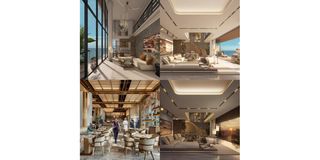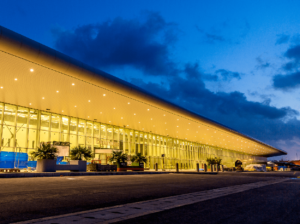Unguja. In the picturesque shores of Paje, Zanzibar, Shivo Towers is emerging as a transformative force, not only in architectural splendor but also in economic impact that it is set to bring to Zanzibar and Tanzania.
With a construction budget of $35 million, this monumental project is poised to reshape Zanzibar’s skyline while generating substantial revenue for the government.
Throughout the construction phase, Shivo Towers will stimulate the local economy by creating employment opportunities for over 300 skilled and unskilled workers, providing a vital source of income for families in the region.
The influx of labor will inject millions of dollars into the economy through wages and consumption, fostering a ripple effect of prosperity.
With now 187 units across 10 floors and a total sales value of $50 million dollars, the Shivo Towers based on the current asking prices is set to generate $7.5 million dollars of VAT, and with pre-sales already achieving over $3,900 per sq metre, Shivo Towers is set to even potentially exceed the above targets.
The sale of luxury residences and the operation of commercial spaces and amenities within the towers will yield significant tax revenue for the government making it the highest tax earning single hectare of residential property on Zanzibar.
Additionally, import duties levied on materials and furnishings imported for the construction and outfitting of Shivo Towers will further contribute to government revenue.
Considering the extensive use of glass, furniture, fittings, and electrical appliances, import duties are expected to generate millions of dollars in taxes. For example, a rough estimate of import duties at an average rate of 10 percent on $15 million worth of imports would yield $1.5 million in revenue.
With specialist training from all over the world flying in to deliver the exceptional first of its kind finishing standards for Tanzania, a landscape design team from Italy with 200 years of experience, Shivo SMC Private Ltd is already in the process of setting up a private academy for top specialist training of support and helpers for the finishing teams on the island in support of this project alone and many more to come.
Some of the amenities that will be available at the Shivo Towers.
Shivo alongside Muchmore Architectural Design and YMA Structural consultants, will employ an incoming army of top professionals from every single construction finishing craft and technological specification imaginable, from top of the line MEP specialists and glass specialists, world class garden sculpturors and award winning horticulturalists, German Glass manufacturers, interior designers, Italian and locally crafted furniture, internationally renowned top of the line lighting and sanitary manufacturers and designers, expert masons and interiors fittings specialists, not to mention an entire team of internally renowned architects and structural designers running/managing and specifying the project to the minutest detail directly from Dubai and Milan.
Allaying concerns about the level of importation relative to local production, Richard Ashby Shivo’s director says “The amount of land and development leverage we have on such a project necessitates a level of materials manufacturing quality that cannot be sourced locally, this is in order to guarantee the longevity of such a technologically and structurally advanced building, however as a far cry from therein taking away opportunity for local sourcing, the very craft and magnitude of the building and its size, only goes to dramatically amplify the amount of local labour and materials training therein produced as a subsidiary result compared to any other equivalent project land use,” says Mr Ashby.

How Shivo Towers compares with other iconic properties.
He adds, “If you take any other typical 10,000 sq m second line project concept for a higher end guest house bungalow resort, the construction cost will normally come to around $2m, well $2m is not even a third of the VAT bill for the Shivo Towers project. We are spending over half a million dollars just on architectural design, our communal gardens and pool area construction alone will cost more than $2m, so you have to look at the total skills generation, job creation, local knowledge creation and revenue opportunity brought forth directly as a result of the development as a whole. So while you can indeed build a traditional bungalow resort out of 100 percent locally sourced labour and materials, it should not automatically be considered to be of net local benefit when compared to a development like Shivo Towers, far from it in fact.”

Mr Ashby further says that the entire Shivo Towers development even after completion will employ over 75 full time staff 24 hours a day all year round, including all the gardeners, maintenance, management, service, bar, spa, waitresses, restaurant managers and chefs, pool staff, housemaids, bookings management and concierge, drivers, local accounts and admin, middle management, estate management and all other supporting staff.















